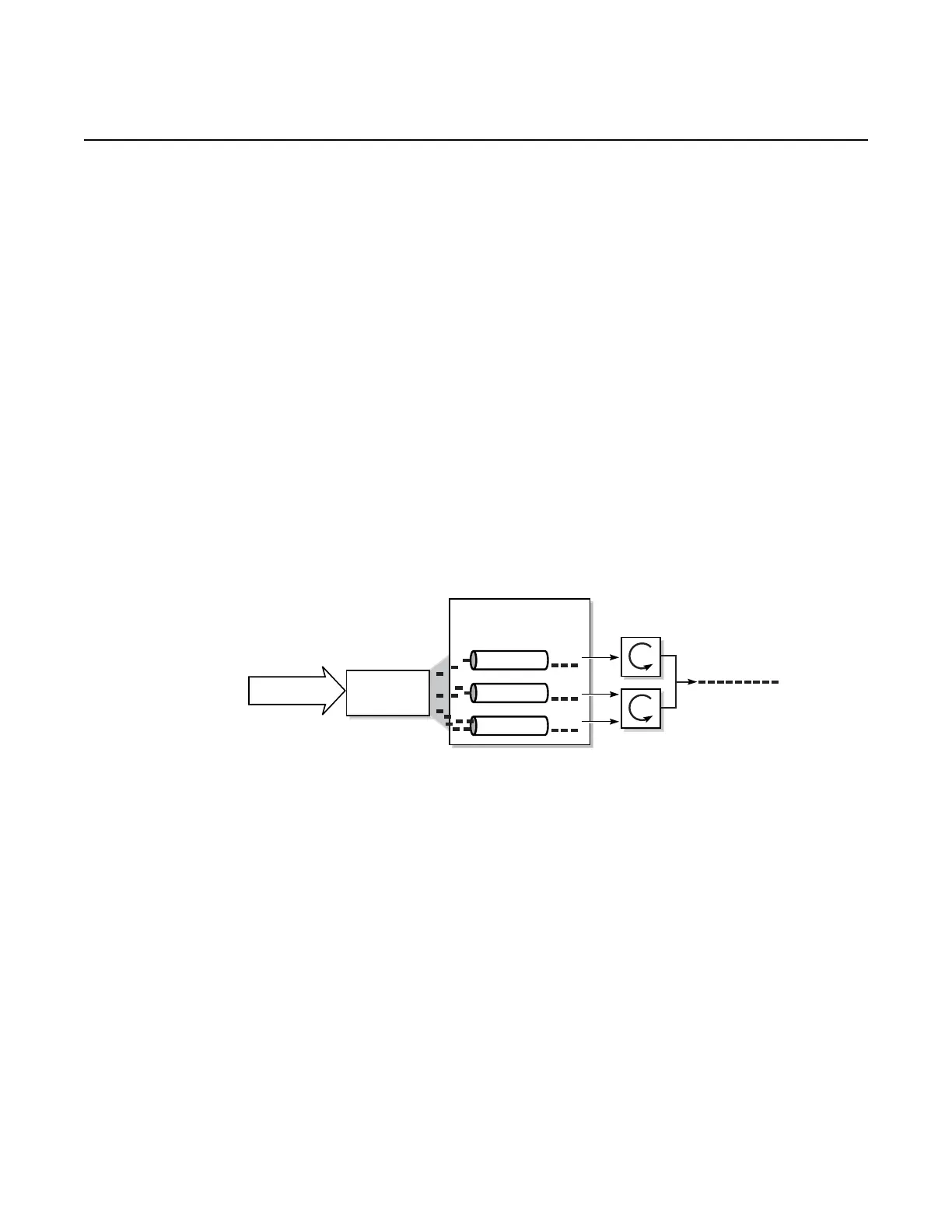QoS and QoS Policies
130
Quality of Service Guide
3HE 11014 AAAC TQZZA Edition: 01
In the simplest service ingress QoS policy, all traffic is treated as a single flow and
mapped to a single queue. The required elements to define a service ingress QoS
policy are:
• a unique service ingress QoS policy ID
• a QoS policy scope of template or exclusive
• at least one default ingress forwarding class queue. The parameters that can be
configured for a queue are discussed in Network and Service QoS Queue
Parameters.
Optional service ingress QoS policy elements include:
• additional ingress queues up to a total of eight
• QoS policy match criteria to map packets to a forwarding class
Each queue can have unique queue parameters to allow individual policing and rate
shaping of the flow mapped to the forwarding class. Figure 23 depicts service traffic
being classified into three different forwarding class queues.
Figure 23 Traffic Queuing Model for Three Queues and Three Classes
Mapping flows to forwarding classes is controlled by comparing each packet to the
match criteria in the QoS policy. The ingress packet classification to forwarding class
and enqueuing priority is subject to a classification hierarchy. Each type of
classification rule is interpreted with a specific priority in the hierarchy.
Table 19 is given as an example for an Ethernet SAP (that is, a SAP defined over a
whole Ethernet port, over a single VLAN, or over QinQ VLANs). It lists the
classification rules in the order in which they are evaluated.
Queue Depth:
Based on PIR and FC
Expedited
E
Assured
Best Effort
E E
Expedited
Scheduler
A A A
B
BB ABAAEEE
B B
Best Effort
Scheduler
Ingress QoS
Match Criteria
Service - 1
Packet Stream
19695

